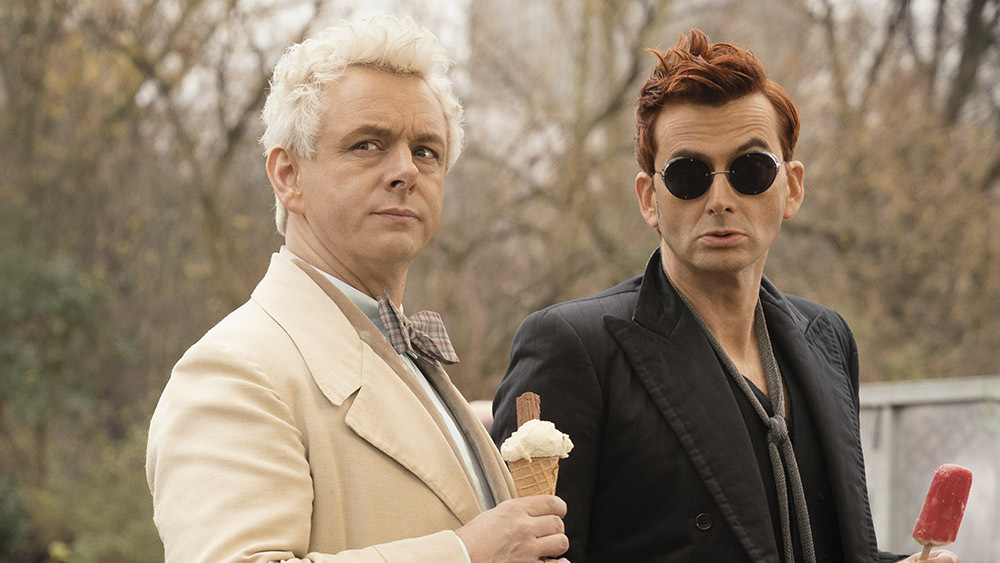- Home |
- Search Results |
- Pratchett and Gaiman’s fallen Gods

A US Christian group has organised a petition against Amazon Prime’s adaptation of Good Omens, the cheerfully, epically blasphemous 1990 novel by master strangesmiths Terry Pratchett and Neil Gaiman.
Whatever the group's mix up about the production company - the original petition called for Netflix to cancel the show - there is no confusion in their argument. They don’t like that God, played by two-time Oscar-winner Frances McDormand in precise, clipped tones, is ‘voiced by a woman.’ They don’t like the relationship between the tender and timid angel Azriaphale and feline rockstar demon Crowley. Most of all, as the petition concludes, the series ‘normalises Satanism’ and ‘destroys the barriers of horror we still have for evil’.

As with the majority of Gaiman and Pratchett’s work, there is an epic sense of scale.
Despite being mostly an atheist, I tend to agree with their finding – at least as far as the book is concerned. Gaiman and Pratchett have made careers out of this. In Gaiman’s work, you pass fallen gods on the street all the time. They’re singing in your bars. They’re in your jails, or selling you diamond rings on the street. Pratchett, meanwhile, invented a whole world just to make the same point.
Nowhere is the theme more apparent than in Good Omens. Angel Azriaphale and demon Crowley have been stationed on Earth since the beginning – since the very beginning, in fact, which explains why they’ve gotten so attached to it (particularly antique books and good whiskey). When the oldest, coldest war finally starts to turn hot and an Anti-Christ threatens to trigger Armageddon, the unlikely duo must find a way to thwart the Four Horsemen and save the world they’ve come to love.
As with the majority of Gaiman and Pratchett’s work, there is an epic sense of scale. But the true heart of the story is about the people and places within arms’ reach: the little comforts, the small-talk in the Garden. Without giving too much away about the ending, it is the moments between people that offer the best chance of survival, and even salvation.

There are surprises here beyond simply seeing beloved characters come to life, and what changes it does make are executed with confidence and grace.
This warmth is brought to life wonderfully in the adaptation, which can be watched as merely a stylish comedic cataclysm – certainly the best of Pratchett’s screen adaptations, and placing highly among Gaiman’s – a celebration of all the small things that make a world worth saving, or as an office romance.
It isn’t an exact translation of book to screen, which works in the show’s favour. There are surprises here beyond simply seeing beloved characters come to life, and what changes it does make are executed with confidence and grace. Adaptation – the act of changing to fit new circumstances – is at the core of Good Omens. It suggests that Heaven and Hell, good and evil, right and wrong aren’t towering, concrete concepts. They change. They evolve. They look different depending on where you stand.
What matters most is humanity, even for the inhuman. It used to be alarmist to believe the end of the world was coming. Now it’s alarming when people don’t. But Good Omens makes its point clear – when the end comes, all we have is each other.